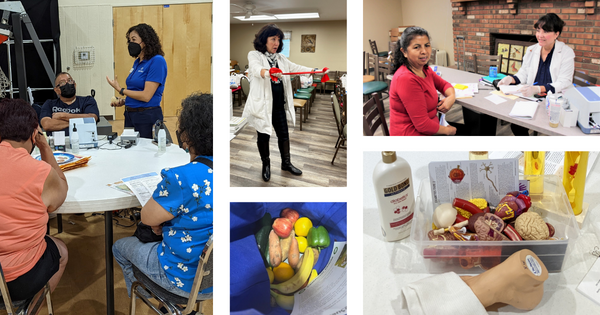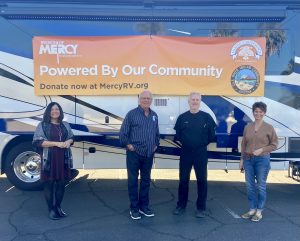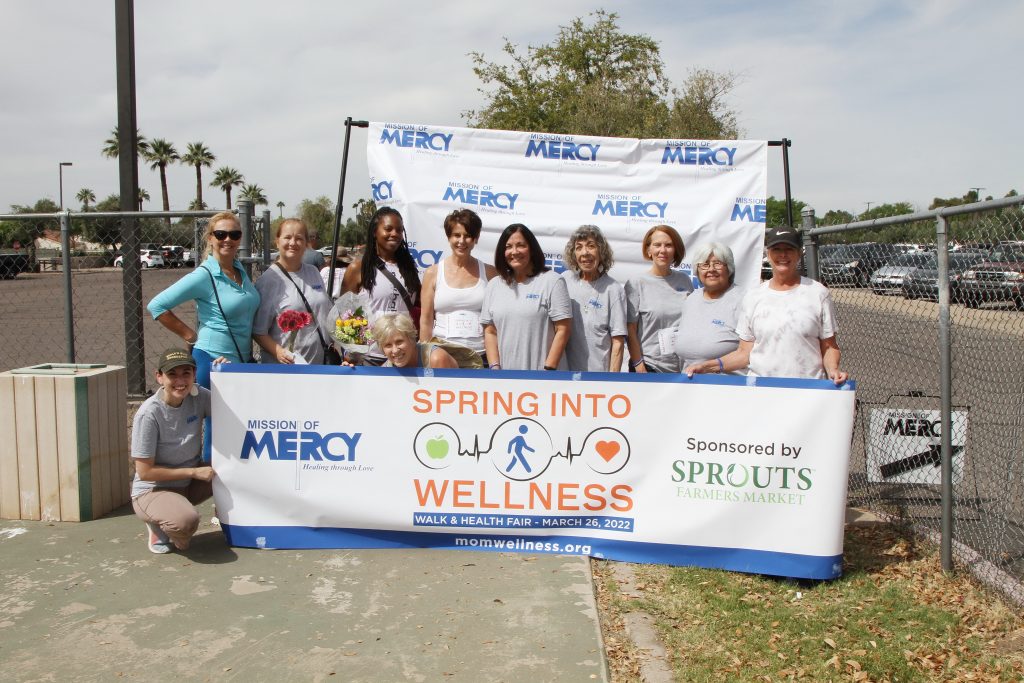Recent Grants Provide Continued Funding to Tackle Chronic Condition

In Arizona alone, nearly 600,000 adults are living with diabetes and one in every three adults is completely unaware they have pre-diabetes, a condition in which your body does not properly respond to insulin resulting in higher-than-normal blood sugar. Over time, having too much glucose in your blood can cause health problems, such as heart disease, nerve damage, eye problems and kidney disease.
Alarmingly, the rate of patients with Type 2 diabetes in the state has doubled in the past decade. Mission of Mercy is at the front lines of this battle. More than 90% of the patients who visit a Mission of Mercy (MOM) clinic site have one or more chronic condition with the top three conditions being hypertension, diabetes and high cholesterol. MOM patients have a prevalence rate of diabetes of 57% – nearly six times higher than the statewide average of 10%.
MOM’s volunteer physicians and nurses treat patients like Martha*, a 62-year-old grandmother of eight who is the primary caregiver for her 85-year-old mother and also helps with after-school care for several of her grandchildren. When she first came to a MOM clinic, she sought treatment for a seasonal virus. She was unaware that she was living with Type 2 diabetes. Thankfully, MOM’s doctors, nurses and diabetes educator were there for Martha, helping her to manage her diabetes and regain her health.
Martha’s story is not unlike many Mission of Mercy patients. Caring for Arizona’s uninsured and underinsured populations is exactly what MOM has been doing for the past 25 years. Most patients earn too much to qualify for AHCCCS (Medicaid) and/or too little to afford private insurance or costly deductibles.
“Our patients have very limited budgets and as a result, they put their health at the very bottom of their priority list,” said MOM Medical Director Brad Smith, NMD. “Unfortunately, many patients can’t even afford the cheapest medications, let alone money for food, the electric bill or transportation.”
Pilot program demonstrates success
Prior to the pandemic, MOM secured significant grants from Blue Cross Blue Shield of Arizona’s (BCBS) Mobilize AZ program as well as Dignity Health St. Joseph’s Hospital and Medical Center to address this growing problem and improve the health of uninsured patients with diabetes via a pilot program. The pilot proved successful and both organizations, along with Dignity Health East Valley and Ibis Foundation of Arizona, have provided continued support for diabetes-related programming at specific clinic locations.
In their January 2023 “Diabetes Action Plan and Report,” the Arizona Department of Health Services indicates that diabetes-related costs in Arizona amount to a staggering $6.8 billion annually, including direct medical costs as well as indirect costs (absenteeism, early disability).
The diabetes management program currently operating at the North Phoenix, Maryvale, Chandler and Avondale clinics gives patients the tools they need to succeed, thereby keeping them out of emergency rooms and improving their overall quality of life. Key partners in this program, Arizona Diabetes Foundation (ADF), Esperanca, Gregory’s Fresh Market and AZCEND collaborate to provide a seamless continuum of care that includes treatment and monitoring; health, nutrition and active lifestyle counseling; and access to fresh produce to improve patients’ health and quality of life.
“We are building a network of support for our patients with many needs, which gives them the knowledge and confidence to make positive lifestyle changes that will improve their health outcomes. We have the opportunity to share in both their successes and challenges,” said Cecilia R. Chapman, RDN, CDE (bilingual Registered Dietitian Nutritionist and Certified Diabetes Educator) of ADF. “We celebrate every success, no matter how small. And if numbers aren’t heading in the right direction, I am able to counsel patients individually to identify needed changes. These can be as simple as cutting soda out of their diet or taking a walk once a week. And we build on their small victories every visit, so they don’t feel overwhelmed.”
The grants provide funding to support patients with treatment and monitoring of the key indicators of diabetes, including HbA1c levels (a critical measurement for diabetic patients), along with individual and small group diabetes sessions, fresh produce distributions, lab work and prescription medications.
“Compliance is the key to improving one’s health when faced with diabetes, and it’s the hardest thing to do,” Dr. Smith said. “While prescription medications are one part of the equation, diet and exercise play an important role in a diabetic patient’s treatment plan. With a Certified Diabetes Educator on our team, we are seeing patients be more accountable for their role in leading a healthier lifestyle.”
Ultimately, the goal of the diabetes program is to improve patient outcomes and, through our success, secure the funding needed to replicate it at all MOM’s clinics.
“We’re always seeking funders who have a passion for community health and are committed to making tangible improvements in the lives of the underserved,” said MOM Executive Director Paula Carvalho. “Blue Cross Blue Shield, Dignity Health and the Ibis Foundation of Arizona have helped provide critical care and support for our patients living with diabetes.”
*Patient name has been changed to protect privacy.



